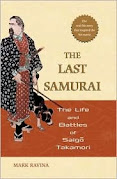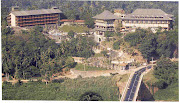Tour the beautiful island of Sri Lanka with My Sri Lanka Holidays. Contact Riolta Lanka Holidays today. We reveal for you to revel: the right stuff
We reveal for you to revel: our island, our nation & our faith will prevail
Riolta Lanka Holidays (Pvt.) Ltd., Sri Lanka
Website: www.rioltalankaholidays.com OR www.mysrilankaholidays.com
www.my-srilankaholidays.com
www.my-srilanka.com
www.bunpeiris.com
SRI LANKA HOLIDAYS: ASOKAMALA OF LANKA
In the loveliest part of old
Some of the finest sculptures in Aanuradhapura are found at
Discovered adorned with Asoka flowers, plucking Asoka flowers in Asoka gardens , the lissome gypsy damsel of incomparable beauty & matchless grace was named Asokamala by her royal discoverer, Crown Prince Saliya. Such was the divine beauty of the damsel, it is said, she was the one, whom you would have tonight, even at the price of falling into the netherworld in the following night.
It was translated for me many years ago by a pundit. No words in English can adequately convey the terms of simplicity & tenderness, or the feminine charms & graces alluded to in the Sinhalese version of the story.
King Dutugamunu had one some named Sali. Not content to bestow on him the ordinary endowments of a prince, the historiographers have not hesitated to ascribe to him a combination of every manly virtue. Delighted with his accomplishments, his father raised him to the dignity of viceroy, & built him a stately palace at the south-end of
On a certain day, Sali together with a number of young chieftains went sporting in the ‘Mahamega’ of pleasure gardens of the city. Attracted by an Asoka tree which was spangled by bunches of beautiful blossoms he walked up to it. Looking up when he got nearer, he spied among the leafy branches a young women who had climbed the tree to pluck some flowers. She was naked from the waist up, but for scanty scarf hanging from her neck which afforded a semblance of propriety, but had got displaced in her efforts to reach out for the flowers.
The prince’s retinue & the other courtiers, who were attracted by Prince Sali’s distraction gathered around him. Entranced by what they saw, & seized with desire, they began severally to accost the girl in ribald jests: ‘Golden one, who & whence art thou? ‘Art thou a daughter of a man or goddess-for never in this world was beauty seen like thine?’ ‘Tell us who are thy parents, & whether thou art married or unmarried?”
‘Lords,” replied the maiden, “I am of the low-born of this earth, forbidden to even cover my breasts, the daughter of the chief of Chandalas, a despised & scorned caste. I prey thee, noble lords, let me be gone to my people.”
Sali whose heart was wrung on hearing her sad appeal, beckoned to the girl to alight from the tree. Turning to the company gathered around him he remarked in an undertone: “Precious stones & pearls are not rejected by man even though they may be found in dung–heap. Why then should damsel-who no woman in Lanka equals in beauty, be despised because she was born of the Chandalas?”
Turning to the girl, he said, ‘Fair one! Don’t think of these odd things. Only remember that I am here beside you….” Taking her by the hand he conducted her to a closed palanquin, & escorted her to his palace. “You will in future be named: Asoka mala,’ he said when he received her at the entrance to his palace...”the fragrant flower I picked from the Asoka-tee”
A thousand tongues which had sung Prince Sali’s fame carried the news of his sensational amour with the Chandala women, to every corner of the city of
All the forces of nature & emotion seemed to be behind the answer Sali sent his father, declaring his unalterable attachment to the damsel of his choice. Howbeit, the king, on learning of his son’s resolution, thought of another approach. Sending for his Brahmin astrologers, & others skilled in soothsaying, he bade them go to his son’s palace to see Asoka-mala, & to report on the tokens of fortunes she possessed.
On being told by his astrologers & soothsayers that Asokamala was fit to be the consort of Sakreya, or Indra-the reagent of the gods, & on hearing her beauty described in such immoderate terms, King Dutthagamini was filled with desire to see her himself. He sent world of his intentions to his son.
Sali, glad beyond measure of the opportunity to confront his father with the, Chandala damsel he had made up his mind to wed, sought Asoka-mala, & said: “Beloved one, my father...the king, is this day coming to the palace for the purpose of seeing theee; delay not therefore in due preparation.” Hastening to do the prince’s bidding she set about preparing the most delectable viands, & arrayed herself in the choices of apparel which had been provided for her earlier on the orders of he prince...
Deporting themselves in humble posture Sali & Asoka-mala stood together with great respect & obeisance at the entrance of the place to receive the king & his ministers. The king overwhelmed by the contagion of her beauty, addressed her: “Art thou then that happy maiden my son has named Asoka-mala” In a voice full of rhythmical cadence she replied”’ I am... my lord.”
Dutthagamini, confounded by delight, took his seat, & was served by her in person. Repenting of his intention to deprive his son of this excellent maiden, the king was filled with a wild exaltation to prove his favour. He accordingly lavished upon his son & would-be daughter, every outward expression of his paternal goodwill. Giving both of them advice for the future, he placed them upon a heap of gold, & performed the marriage ceremony. Under the open windows in the courtyard, the musicians continued to play & sing in an air which was full of love & dreams, & in a scene lit by a brilliant moon, the king left the happy pair to return to his palace.
Prince Sali, far from becoming palled with the charms of his wife, continued to enjoy the most perfect happiness; while Asokamala, spending her time in acts of charity, balanced the sufferings of the less fortunate from the super-abundance of her own good fortune. Thus, in an atmosphere of passion & goods deeds, the pair blended life with intoxicating happiness.
The legend is probably the most authentic in Sinhalese tradition since it crystallizes into coherent thought the portrayal of a period-piece passed down by ancestators to posterity on a theme which animates all living souls down the ages, & is current to this day. It has even found a counterpart in monument.
Before his death, Dutthagamini sent for his dashing, romantic son, & is understood to have said to him” Thou may’st succeed to the throne, & reign protecting the world, & our religion.” Sali was well aware of the condition on which he ‘may’st’ do so. In its small scape, every line of the tradition carries a moral. In, his choice between the throne, & Chandala women, Sali opens the windows of his soul that saw the finest in everything...he refused the throne. (5)
Ancient Sinhalese have defined the ultimate graces of beautiful women -bright red (tone of the tender NA leaf) (1) lips, long blue-black hair (2), doe-eyes (3), swans-like breast , light brown clear complexion, narrow waist & broad hips.
(1) Among the remarkable features of NA is beautiful bright Red Leaves that finally matured in to a deep green. The “Na Tree” (Iron wood), botanically called “Mesua Nagassarium” grows to about 30 m high and indigenous to the lower wet Zone of Sri Lanka. In early times the NA timber was used to make bridges owing to its hardness & durability. Today it is a protected tree. It's believed that the first visit of Buddha was to grove of a NA Tree at Mahiyangana. It is also said the next Buddha Maitreya (Natha) will attain enlightenment under a NA tree. The flower of NA is also used in herbal medicine and preparation of perfumes, cosmetics and soaps. Na tree is named the National Tree of
(2) Ancient & medieval Sinhalese poetry praising the beauty of perfect women emphasize the color of hair as bluish black. Muthiyanga stupa of Sri Lanka enshrines Sacred Kesha Datu, a lock of pure & blue-black hair of Gauthama Buddha. Perhaps such could be the color of the hair of an Asian man of perfect of health & purest of thought.
(3) In ancient Sinhalese poetry long serene eyes of beautiful women are likened to those of a doe.
(4) The Nil Mahanel (Nympheae Stellata) plant which grows in shallow waters is found in all over the
(5) On the death of King Duuthagamini, his brother Saddatissa, Tissa the Pious, was consecrated. He reigned for 18 years during 137-119 BC.















































































































0 Comments:
Post a Comment